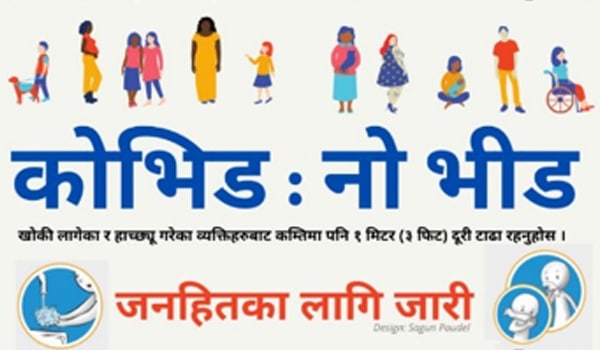
The Government of Nepal pledged a long time ago that safe abortion should be free to all women at the point of use. Now, they have once again demonstrated their commitment to promoting women’s right to safe abortion. After the 23 March nationwide Covid-19 lockdown, both clients and providers found it extremely difficult or impossible to access facilities providing safe abortion, which led to most of them closing. Marie Stopes Nepal’s contact centre saw an increase in calls from women seeking safe abortion care.
In response, theReproductive Health Sub-Cluster,a group of about 70national and international NGOs in Nepal,convened by the Nepal Ministry of Healthandco-chaired byWHO and UNFPA,calledfor safe abortion to be defined as an essential healthcare service at local and national governmental level. There were already strong links between the key multilateral agencies, NGO providers and government authorities on the issue of safe abortion, because of ongoing work to implement the Government’s commitment to services. This track record over recent years has been valuable during the current crisis, with the government receptive to advice on how to safeguard abortion care during the lockdown. Defining safe abortion as essential healthcare has allowed abortion providers to circumvent the travel restrictions of the lockdown to reach their facilities, with special mobility passes. So far, 11 Marie Stopes clinics have re-opened and are providing surgical and medical abortion services, using our clinical guidelines on protecting clients from Covid-19.We don’t have specific numbers on how many other providersorgovernmentclinicshave resumed services. Thereare well over 1,000 government-approved health facilities that providesafe abortionin Nepal (Guttmacher estimated 1,100 in 2014), including in remote areas of the country.Our understanding is that clinics may re-open ifenoughstaff have obtained dispensation to travel, there are sufficient staff to run the centres and provide services, and there is no risk to clients.
Increasing access to home-based safe abortion care is being considered if the lockdown continues much longer. WHO are playing a leading role in coordinating a Safe Abortion Task Team, which includes government stakeholders as well as NGOs, who are developing guidance on how to implement WHO-approved interventions, including telemedicine, in the Nepal context.
SOURCE: E-mail, from George Hayes, Marie Stopes Nepal, 15-16 April 2020 ; VISUAL:Public Health Update, March 2020



